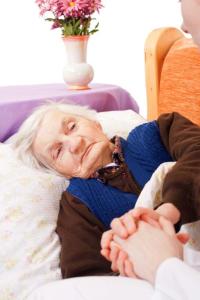 Domain 11 – Altered States of Consciousness (ASC)
Domain 11 – Altered States of Consciousness (ASC)
This domain has an anomaly within it. The National Framework says that the diagnosis of any one condition is not the reason to grant funding, but this domain has the priority level of coma. So the diagnosis of coma will obtain the funding. The only proviso to that is that the coma has to be ongoing. I’ve had a few clients that have had issues that fall into this domain, but so far, they have been transitory, even if they have lasted for hours, their state of being in ASC still comes to an end.
So the key question to this domain is what is an “Altered State of Consciousness”? It is about not being fully conscious. It is commonly about having a fit or a stroke. Fits and strokes have magnitudes of seriousness and therefore their side effects and consequences have magnitudes of seriousness. But ASC can also be a state of not fully unconscious, but at the same time not fully conscious. I’ve had clients that become “vague” and this is not a cognitive decline, this is for a short period and is different from their day to day presentation. They often need to sit or lie down whilst this is happening. It is about being in a state of mental and physical “being”, that they cannot fully engage with the outside world. They seem “awake”, but just not fully “there”, however when the ASC passes, their normal day to day presentation will return and they can engage with their environment in the way that they were able to do before. I’ve also had clients who were “unrousable”, so asleep, but not able to be woken from that sleep and this can last for hours at a time. The person is safe, in that they are tucked up in bed, comfortable and warm, but unsafe in that if they remain unrousable when they need medication or food, they cannot be woken to give it to them and this can have a detrimental effect on their wellbeing.
ASC can also be Transient Ischemic Attacks (TIAs). A TIA is a mini stroke, it can be very fleeting and presents as though for a few seconds the individual becomes vague and then returns. If they were on their own when it happened, it would be difficult to tell that it happened, other than their presentation may have changed as a result. Like any stroke, there can be some brain damage, which will lead to an altered presentation, as the individual will have lost some ability. This is often seen as a “stepped decline”, where someone will plateau, then from one moment to the next change, then plateau again until the next change. This is a common presentation with vascular dementia (as opposed to Alzheimer’s, which tends to be a straight line decline).
So having established what an ASC is, how is it scored? No needs is fairly obvious, so no evidence of ASC, low needs is a history of ASC, so possibly one stroke or fit in the past, but nothing more than that and importantly nothing happening currently.
Moderate and High needs can be trickier to score, this is someone having an ASC, but the difference between the 2 scores is about how frequently they are happening and very importantly, what is being done about it. With TIAs, often there is little or no intervention, even if the carers do realise that something has happened, they just deal with the new presentation. If during or after the ASC there is either prompt and/or skilled response to the situation, which may include an admission to hospital, then this would score high rather than moderate. The prompt and/or skilled response does not have to include a trip to hospital, but might include a carer sitting with them one-to-one for a while; it may include a drug therapy or other additional support. It is also about the risk of harm from the ASC, as some can have virtually no effects, such a very small TIA. So if there is no intervention and not much harm, then it would score moderate and more frequent episodes, more serious harm and in particular skilled and/or timely intervention would score high.
There is no severe scoring in this domain, but there is a priority, which as discussed includes coma. The alternative priority score for ASC is something happening most days, that does not respond to treatment and there is a severe risk of harm. I’ve never met a priority client yet, they should not have issues with funding, but should be cared for in specialist units in most likelihood – but I stand to be corrected.





Hello. I am curious to know why delirium (including hallucinations and wandering) are not being accepted as Altered States of Consciousness? These meet medical definitions of ASC and are listed as levels of Altered States of Consciousness in any medics training.